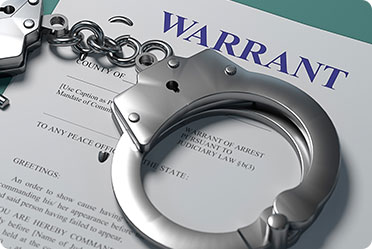
What happens when someone is accused of a crime and under criminal investigation in one state, but that person lives in another state and failed to appear for court? This complicated legal issue is difficult for the judicial systems in both states, as well as the person that has been charged, and may include a warrant for that person’s arrest leading to possible interstate extradition.
Thankfully, there is a process for handling situations like this countrywide and in states such as New Jersey and Pennsylvania. Even for DUI cases, which may not seem to be serious criminal matters, those arrested and facing criminal charges in Pennsylvania will face extradition if a bench warrant is issued by a judge in a Pennsylvania court. Many times, a defendant is unaware of existing charges in the issuing state, if the police file a criminal complaint after releasing the driver from custody. Sometimes, the issuance of the complaint will occur weeks or months later.
Bench warrants are typically issued when there is a failure to appear in court. This is actually quite common in DUI / DWI cases where the defendant is out of state. The defendant may not have known about the original court date or may not have a way to report to court in the state. Often, the driver fails to give an accurate address to the police and the summons to appear in court is never received by the driver.
Bench warrants also differ from regular arrest warrants. With an arrest warrant, there is the opportunity to pay bail in lieu of spending the time in jail. With a bench warrant, the only way to satisfy it is show up in court. The court can also require that the defendant be held in jail with a high bail, until the scheduled court time.
If a DUI bench warrant has been issued and the defendant is in another state, Pennsylvania will most likely extradite that person. Extradition is the process of sending a person that is wanted in one state to another state for criminal processing. When this is issued, the defendant is now referred to as a fugitive. The home state, referred to as the asylum state, will arrest and detain the person, and with the issuance of a governor’s warrant from that state transport the fugitive to the state that is pressing the charges.
Extradition can be time consuming and expensive. Not only does the asylum state have to arrest and detain a potential criminal of another state, they also have to process an additional warrant to allow the transport of that person out of the state. The demanding state has the burden of retrieving the criminal within a certain time frame. If all of these factors are not met, the fugitive may be released by the asylum state.
Some cases will not result in extradition, especially when DWI cases are traffic offenses. However, if you are facing extradition for a DUI bench warrant, you are able to fight the extradition in your asylum state with a local lawyer. If you are extradited for the bench warrant, a lawyer in the demanding state would need to assist in the case.
Leckerman Law focuses on safeguarding the
rights of individuals charged with DUI, DWI, DAI, and
other alcohol-related criminal offenses - Call Us Now For
NJ DWI (856) 429-2323 | For PA DUI (215) 496-9292